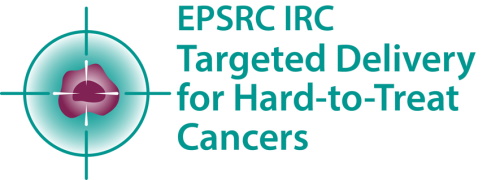
“So, then it was my birthday. I've never thought much into birthdays. Come and go as they do. But this one seemed pivotal for me, would I see another one? My 40th next year, big plans, would they happen? This leads you on to thinking about other big moments. The girls finishing school. The girls finishing college. Mark’s 40th birthday. The girls graduating. The girls getting married and having children. How many big occasions would I see? Who would be there for them all when I wasn’t? I have placated myself with this, I will see as much as I can for as long as I can. That’s all that I can do. Who knows what the future holds?”
An extract from the ‘It is what it is – a mesothelioma blog’ by Helen Bone. See more at https://helenbone82.wixsite.com/itiswhatitis
Ahead of Action Mesothelioma Day on Friday 1 July, this month’s Cancer in Sight blog is written by Helen Bone who was diagnosed with pleural mesothelioma in August last year. In the following extended blog written for the IRC monthly Cancer in Sight blog series, Helen shares her story to help raise awareness of mesothelioma and her hope for better future outcomes for patients.
In August 2021, I was diagnosed with pleural mesothelioma, an incurable cancer that is caused by exposure to asbestos and forms in the lining of the lungs. I am 39 years-old and live in Middlesborough, in the northeast of England, with my husband Mark and our three daughters who are 10, 13 and 16.
I am a nurse based in critical care at the James Cook University Hospital and was working there all through COVID – and then, quite early on in 2020, I got it. The virus left me with a strange chest pain, which seemed to get worse following my first COVID vaccination. After the second jab in March last year the pain ramped up, but I put it down to all sorts of other things. I’d intentionally lost four stone in weight and thought I might have gallstones – I was fat, female and fertile – so fitted the profile. I had a chat with a lovely surgeon at the hospital where I work who was happy to remove my gallbladder but wanted to make sure there was nothing else going on.
When I went for an ultrasound I knew there was something not right because the sonographer said I had pleural effusion. Given my job, training and what I do, I fully appreciate that women of my age don't randomly get pleural effusion for no reason. I think at that point, I knew it was bad. But I kept it to myself because I didn't want to worry my husband Mark, the kids and my other family. I just went and had the fluid drained, which when tested was negative indicating everything was normal.
While mesothelioma predominantly affects men over the age of 65 there’s more women being diagnosed. Asbestos is in many public buildings, including schools and hospitals, which are now in disrepair. I’ve spoken to teachers who have it, not just men in particular industries which is the perception most people have of mesothelioma. I want people to know that there is a shift and I want people to understand that this has happened to me – and I'm not a 65-year-old man. Helen Bone, who has pleural mesothelioma, author of ‘It is what it is – a mesothelioma blog’
As a nurse based at the James Cook for my entire career, I have worked across the hospital, including cardiothoracic. One of the surgeons there suggested a biopsy, which I agreed to, and a pleural tap and a talc pleurodesis, where talc is inserted into the pleural space to close the space between the lungs and the chest wall, followed. I had about two litres of fluid drained but was home in a couple of hours. My family knew I was having hospital tests but nothing else. While I felt there was something not right, I didn’t in a million years think it would be mesothelioma because that generally affects men over 60. That’s not me, right?
I was asked to attend the hospital to discuss the results of the biopsy on 5 August 2021 and was told, despite COVID restrictions, that I could take someone with me. I knew something was coming. It must have been so hard for the respiratory team – who are my friends and colleagues – to tell me my diagnosis. But the consultant did and although he was lovely with it, I felt like I’d been hit by a bus.
This is the point when your old life is left behind. You now have to live a different life with a diagnosis that requires a new way of thinking about things. I had so many questions, but I mainly just needed to get home and tell our family. Mark and I talked to the children first. They're all such good kids, very sensible. They were, of course, upset and they had loads of very appropriate questions. Then we told the rest of the family and everyone else.
I think on the day the diagnosis happens, you have this big rush of emotion and everybody's upset and everybody's crying and everybody wants to be around you. And then as time goes on, when you learn to live with it, everybody kind of accepts that it's happening. But it's almost like they are waiting to catch you when you fall, which is comforting for me, but it mustn't be very nice for them.
The first month after my diagnosis was a bit of a whirlwind. I was put in touch with people, patients and relatives of patients who had mesothelioma, and I had a lot of information coming at me. Everybody said that the first month will just be awful because you don't know where you are in your journey. You're still waiting for lots of answers – although you have the diagnosis, you need to know the ins and outs of what it means for you. What would my life be like now? How will it affect me practically? How does it affect us financially? Emotionally? And how do we all support each other? All of these questions because of one word – mesothelioma.
While mesothelioma predominantly affects men over the age of 65 there’s more women being diagnosed. Asbestos is in many public buildings, including schools and hospitals, which are now in disrepair. I’ve spoken to teachers who have it, not just men in particular industries which is the perception most people have of mesothelioma. I want people to know that there is a shift and I want people to understand that this has happened to me – and I'm not a 65-year-old man. The probability is that I have been exposed to asbestos through contact in a building but it’s unlikely I will ever know – I’ve been in so many places, how can I possibly remember if I walked down a corridor and there was a workman in the roof? I will probably never know when or where it happened but it’s not fundamentally going to make a difference – although it’s always the first question everyone asks.
I have Stage One Mesothelioma. It’s very early on and most people don’t get diagnosed until they reach Stage Three, when it’s invaded the ribs and other organs and there are symptoms. Mine seemed to be stirred by something and identified early which is unusual. I was offered a pleurectomy decortication – a long and detailed surgical procedure removing the pleural lining around the lung and any visible tumour masses – which the surgeon explaining it to me likened to being hit by a bus. I fully appreciate what that surgery entails because, as a nurse, I've seen the after-effects of it. And even if someone goes through the surgery, at the end of it they still have cancer. I just couldn't see any reason to put myself through that when I feel great – why would I run in front of a bus? Current research shows no better outcomes to surgery but if that changes, I might well consider it. Immunotherapy was not an option for me as trials had finished and it is not yet a standard treatment for mesothelioma. So, it was chemotherapy or wait and see.
After talking it through with family, I started chemotherapy in September last year and had six cycles, which I tolerated pretty well apart from the usual side effects. I had my post-chemotherapy scan in March this year and it showed there has been no further growth which is reassuring. I’m doing the Couch to 5K and working with a personal trainer to improve my fitness. I’m feeling chipper apart from the pleuritic pain in my side which I treat with hot baths and painkillers. But, for the moment I’m fine. My main struggle has been filling out the forms to take ill health retirement from my NHS nursing career. This has been heartbreaking because I worked so hard to progress and qualify from being a nurse to getting my Master’s degree required for Advanced Practice roles. I’ve worked so hard to reach that point and now I have to let it go. I understand it is best for me and my family, but I do feel robbed of that achievement and the years to come of enjoying working in that role. I'm a young woman with young children, and I potentially had another 30 working years in me. And now, I've not got that.
Thankfully there is support and Mesothelioma UK is invaluable – I don't know how I would have managed that first month without them. The Macmillan team and all the nurses at my local hospital have been fantastic and are always on the other end of the phone when I need them. Friends and family have been fantastic too.
Raising awareness of mesothelioma is what’s most important to me now, and I write a blog to share my story (see ‘It is What it is’ here). I think it helps to hear the patient’s voice – I learned so much more from my patients than I could from books or lectures. Listening to patients means we can help to make their lives better.
In terms of trials and research, if there is anything I qualify for to help then I want to be a part of it. I am in a career where everything is based on evidence and the drugs we use now needed many people to volunteer for trials in the past. If I can do anything that makes things better for people with mesothelioma, I want to do it. When Liz Darlison MBE, who is an amazing woman and nurse who is Director of Services at the national charity Mesothelioma UK, went to Parliament to lobby for asbestos to be removed from public buildings and for an improved asbestos register, she told my story.
I don’t know how my mesothelioma story will end. Nobody does because everybody’s trajectory is different. But there is hope. As medicine advances and more research happens, who knows? Even if these advances might not benefit me in my lifetime, I'll certainly make sure that I do everything I can to help other people who it might happen to after me. And sadly, inevitably, it will.
• Read Helen Bone’s personal blog here: https://helenbone82.wixsite.com/itiswhatitis
• For futher information, support and to read more about Mesothelioma UK and about Action Mesothelioma Day 2022 see mesothelioma.uk.com


